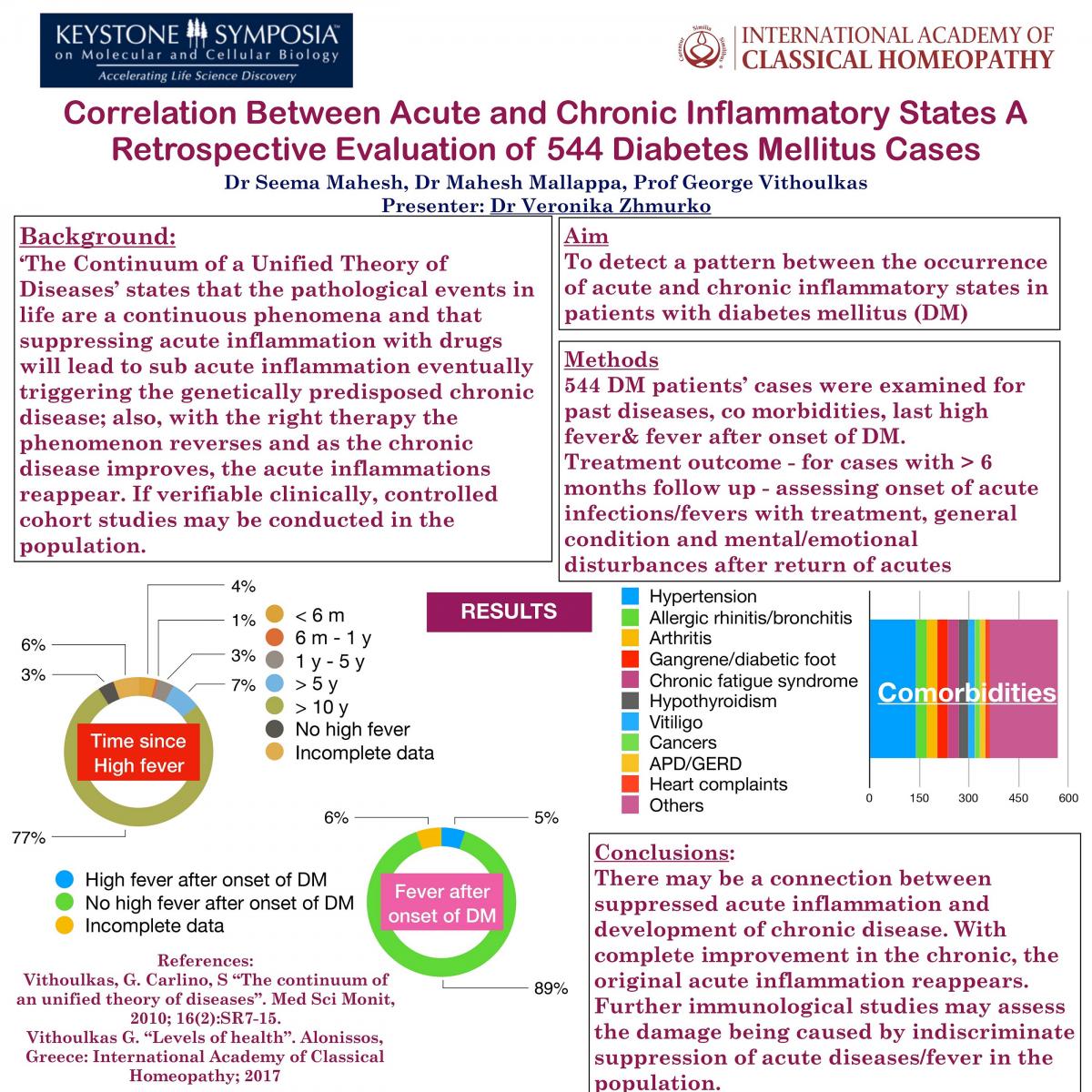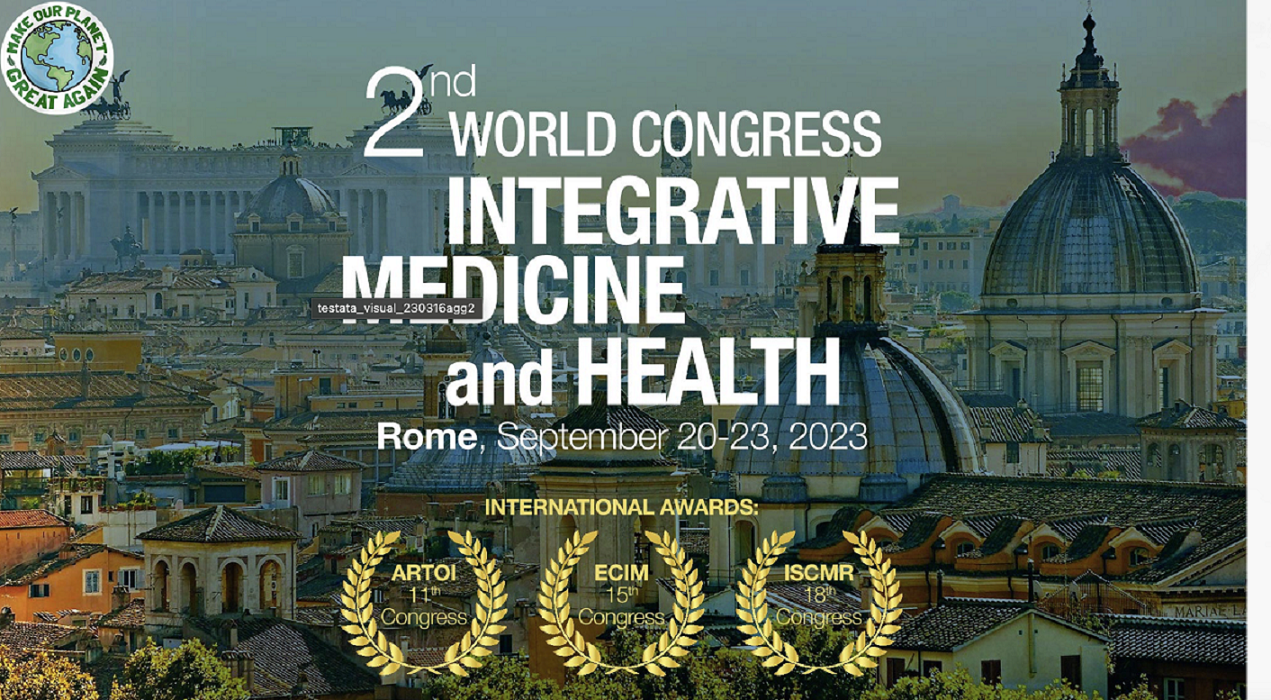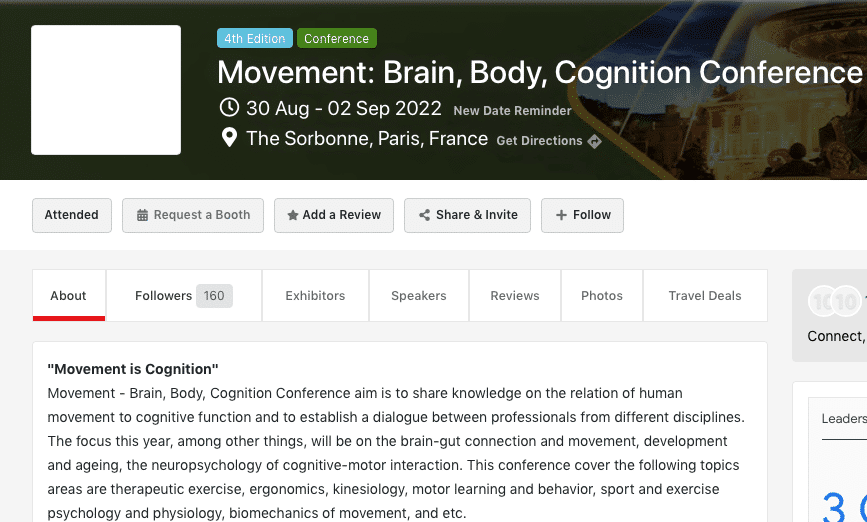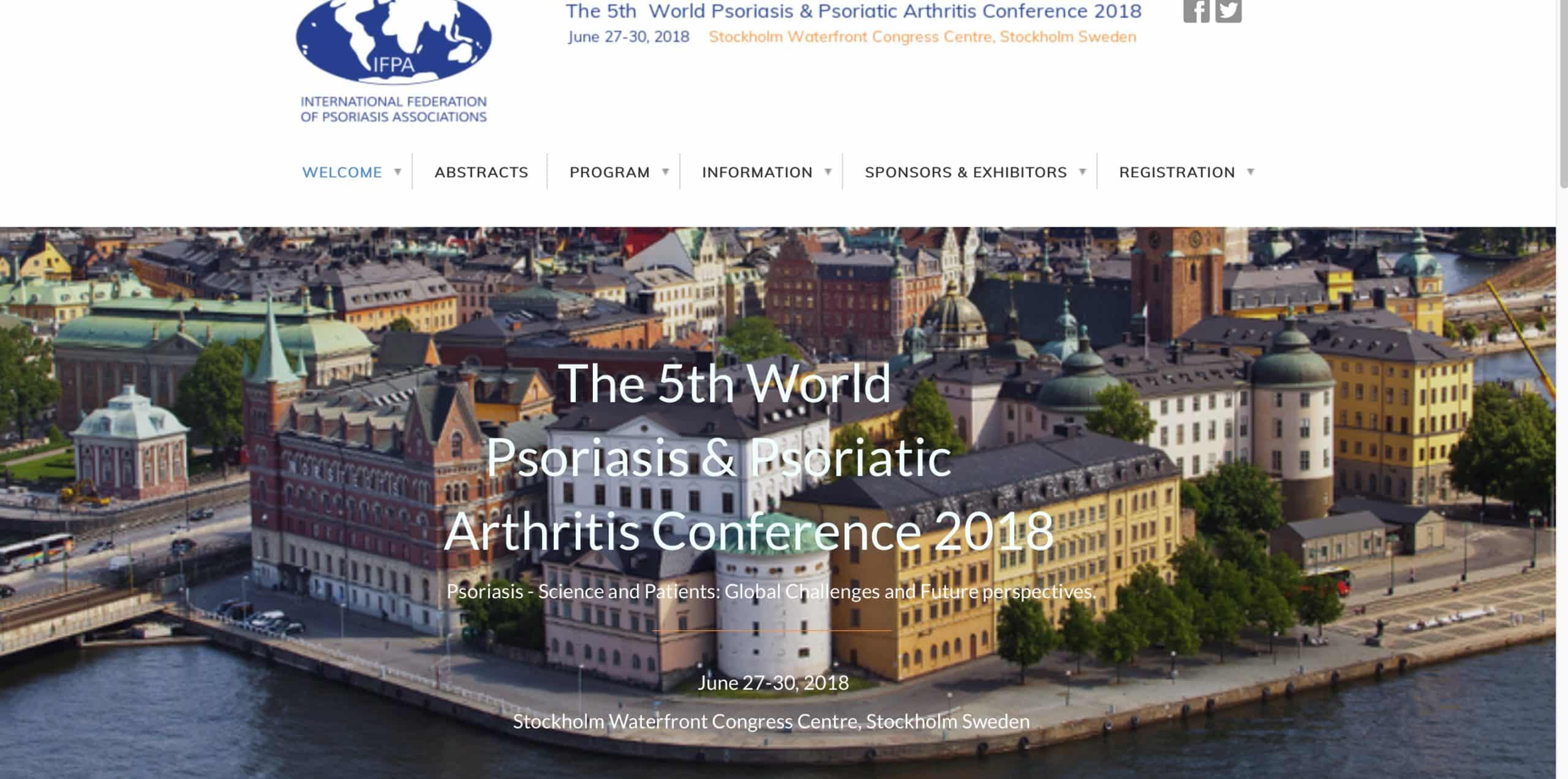Correlation Between Acute and Chronic Inflammatory States – A Retrospective Evaluation of 544 Diabetes Mellitus Cases
Dr Seema Mahesh1, Dr Mahesh Mallappa1, Prof George Vithoulkas2
1Centre for Classical Homeopathy Bangalore India; 2International Academy of Classical Homeopathy University of the Aegean Greece
Presenter: Dr Veronica Zhnurko, PhD
Background
‘The Continuum of a Unified Theory of Diseases’ states that the pathological events in life are a continuous phenomena and that suppressing acute inflammation with drugs will lead to sub acute inflammation eventually triggering the genetically predisposed chronic disease; also, with the right therapy the phenomenon reverses and as the chronic disease improves, the acute inflammations reappear. If verifiable clinically, controlled cohort studies may be conducted in the population.
Aim
To detect a pattern between the occurrence of acute and chronic inflammatory states in patients with diabetes mellitus (DM)
Methods
544 DM patients’ cases were examined for past diseases, co morbidities, last high fever & fever after onset of DM.
Treatment outcome – for cases with > 6 months follow up – assessing onset of acute infections/fevers with treatment, general condition and mental/emotional disturbances after return of acutes.
Results
233 females and 311 males with average age of 53.93
The top 10 most frequent diseases in the past history were Allergic Rhinitis/Bronchitis, Tonsillitis, Dermatitis, Recurrent UTI, Anal Fissure/Fistula/Haemorrhoids, TB, Appendicitis, Renal Calculi, Fibroid Uterus, Hypertension and Typhoid
81% reported no fever since over 10 Years and 89% had no fever after the onset of DM.
The top 10 most frequent co morbidities were Hypertension, Allergic Rhinitis/Bronchitis, Arthritis, Gangrene/Diabetic Foot/Non Healing Ulcer, Chronic Fatigue Syndrome, Hypothyroidism, Vitiligo, Cancers, APD/GERD, Heart Complaints
197 cases had follow up of > 6 months.
36% developed acute diseases with individualised therapy. Of these 58% improved in their general condition after the return of acute diseases.
56 cases had mental/emotional issues and 63% improved greatly after the return of acute states.
Conclusions
There may be a connection between suppressed acute inflammation and development of chronic disease. With complete improvement in the chronic, the original acute inflammation reappears.
Further immunological studies may assess the damage being caused by indiscriminate suppression of acute diseases/fever in the population.
Funding: Nil
Conflict of interest: None
https://tks.keystonesymposia.org/index.cfm?e=web.Meeting.Program&meetingid=1622













